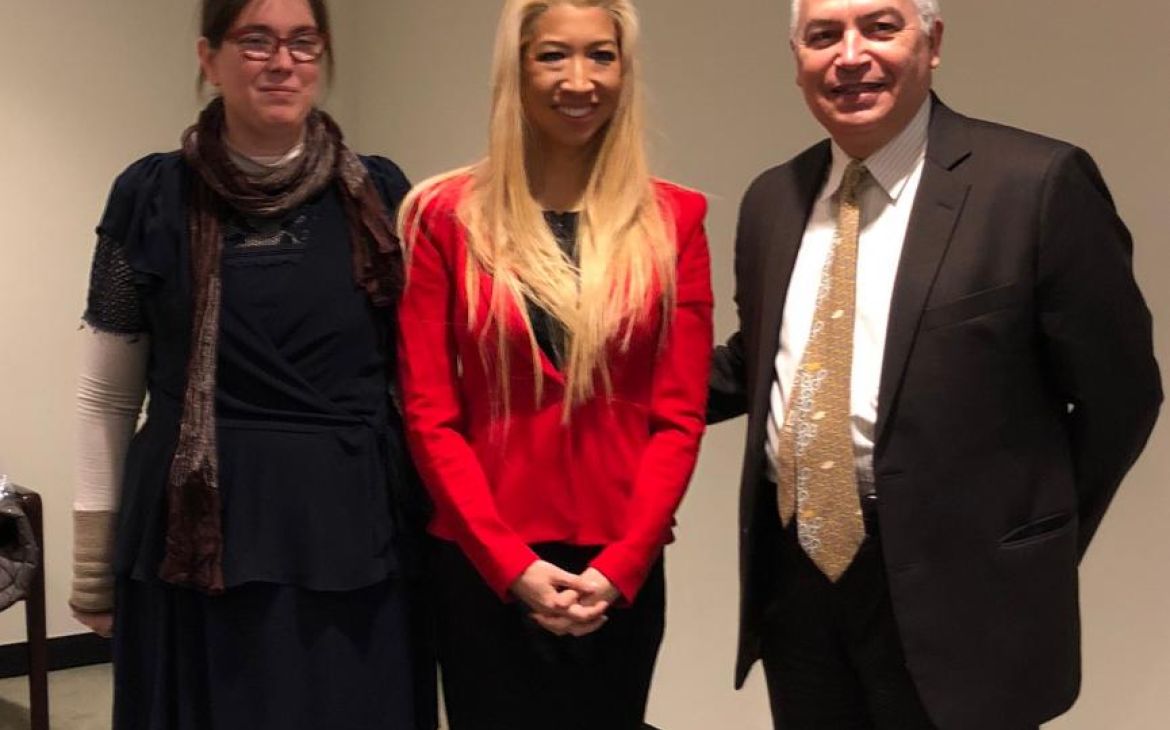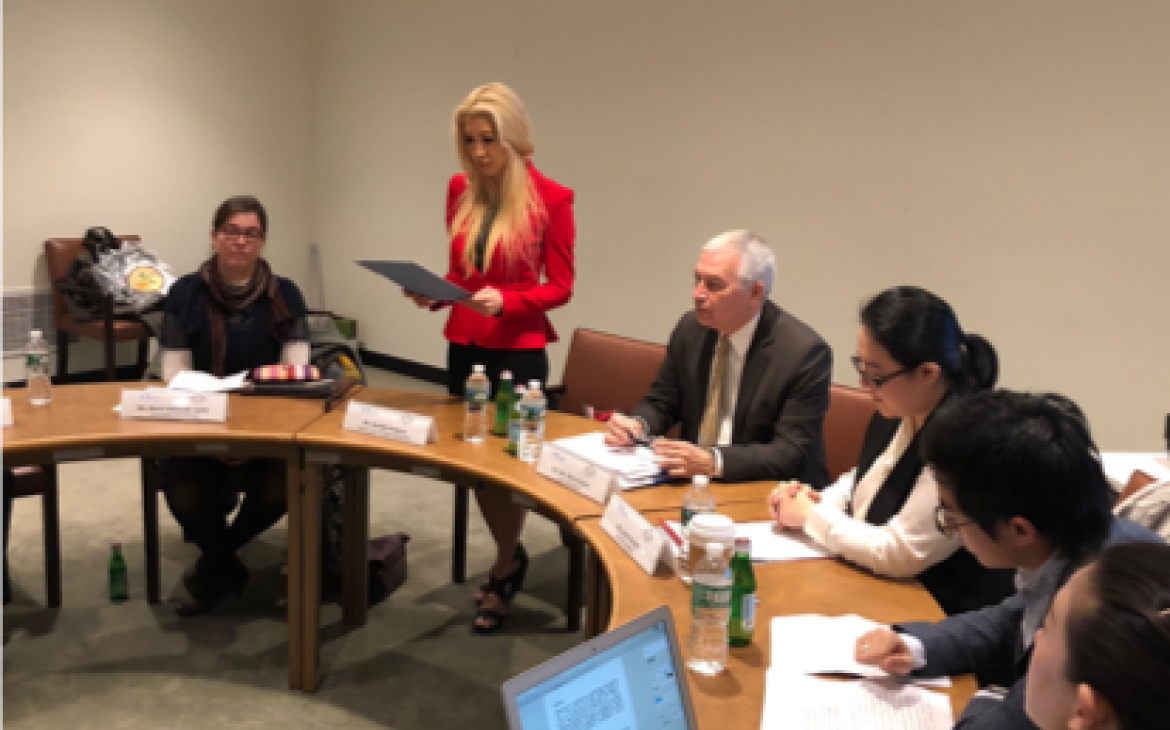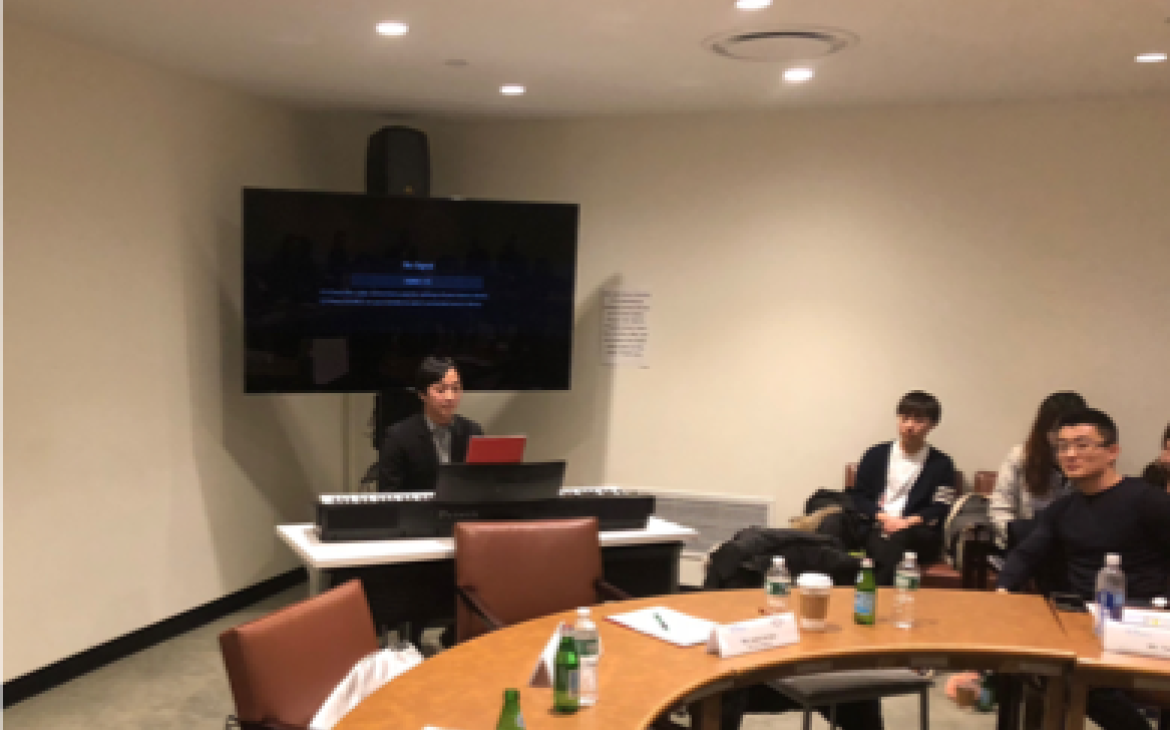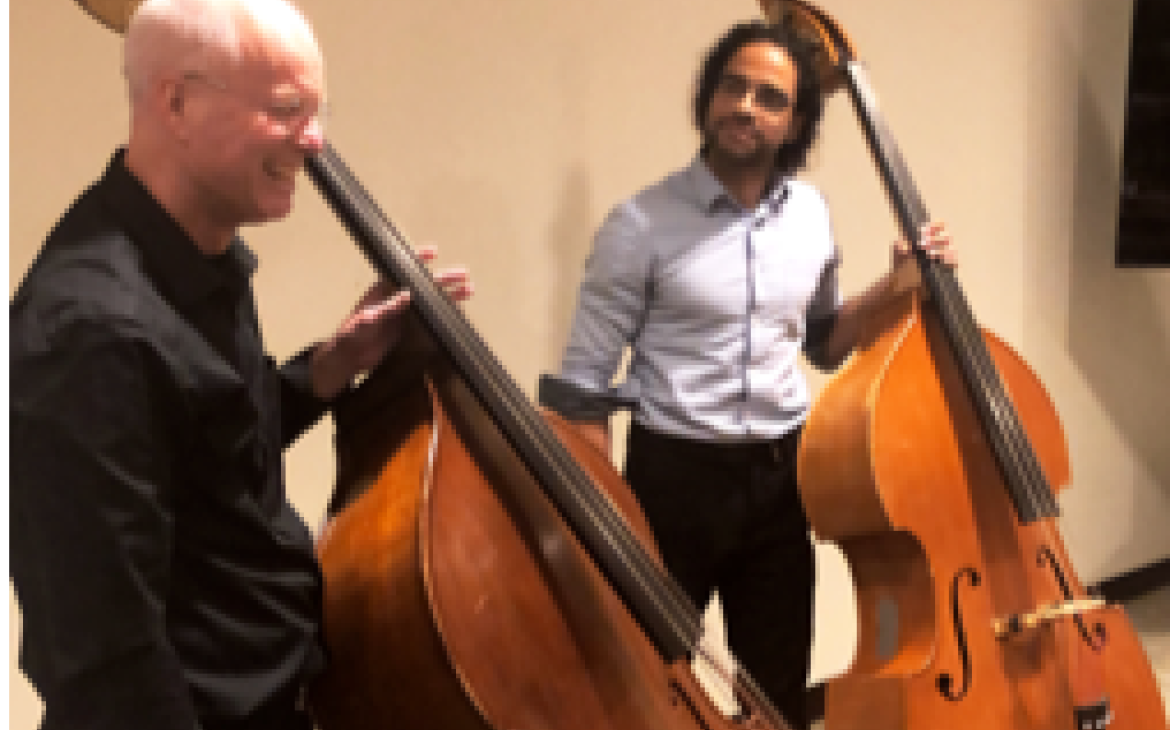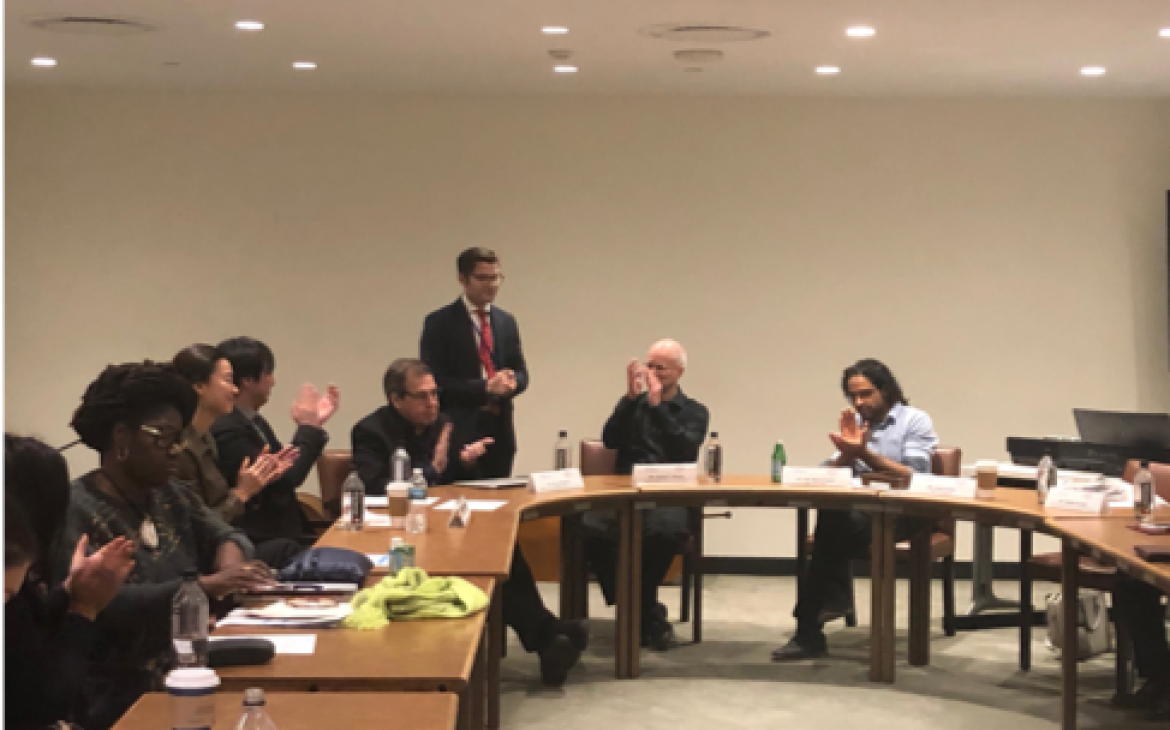30 November 2018, New York, United States – The United Nations Institute for Training and Research (UNITAR) in New York and the New York based music education company Time Ranger Inc. co-hosted a one-day seminar on Music Education and Sustainable Development on Friday, 30 November 2018 in the United Nations Headquarters.
UNITAR firmly believes in the value of inclusive arts, and cooperating with the Time Ranger Inc. offered us a great opportunity to promote sustainable development goals, especially on Good Health and Well-Being (Goal 3), Quality Education (Goal 4) and Reduced Inequalities (Goal 10).
Several UN music related entities including the UN Chamber Music Society and UN Singers volunteered to participate in this event. In the morning, Ms. Brenda Vongova, the President of the UN Chamber Music Society, Ms. Lucia Jia Guo, the CEO of the Time Ranger Inc. and Mr. Marco Suazo, the head of office of the UNITAR New York delivered brief opening remarks prior to the beginning of the event. Mr. Suazo expressed his excitement towards UNITAR’s collaboration with the Time Ranger Inc. – a company that is focusing on promoting music education and facilitating the relations between classical music musicians and contemporary society. Mr. Suazo agreed that music should be an integral part when promoting peacemaking and peacebuilding. It was UNITAR’s first attempt holding an art, especially music related event. As the head of office, he was extremely hopeful for the results of this event he was very grateful for the participation of different entities.
After Mr. Suazo, Ms.Vongova introduced the UN Chamber Music Society. She mentioned that UN Chamber Music Society’s performances are dedicated to promoting the UN goals at large. Through their creative power, UN Chamber Music Society is dedicated to moving audiences and helping to promote the universal values of the United Nations.
Ms. Lucia Guo’s speech resonated with both speakers. On behalf of the Time Ranger Inc., she expressed her opinions that the music should be a borderless art. Time Ranger Inc. should be free and inclusive. Through the events hosted by UNITAR, the power of music will be utilized. Their goal eventually, is to use the power of music to benefit more disadvantaged groups.
After the opening remarks, the event started with a seminar focusing on the ballet, especially the development of ballet in China. The first session was delivered by Ms. Yan Zhu, the principle dancer and the deputy director of the National Ballet of China. During her speech, she included her observations on how ballet developed as a form of western art throughout the years in China. Ms. Zhu believes that ballet should be gender inclusive. She provided her understandings on the relations between ballet music, ballet movement and promoting cultural diversity and gender equality. In her opinions, the evolvement of classical ballet performances and the different usages of music represent a connection between art and the cities. Classical ballet performances were re-interpreted and re-adopted in various forms throughout times. As a dancer, she experienced the development of the arts as well as the humanistic spirit that ballet stands for.
Ms. Marie Deblonde-Vallet, the Vice-President of the UN Singers delivered a short introduction on the UN Singers. UN Singers was founded in 1947. It is a club affiliated to the UN Staff Recreation Council (UNSRC). Its members consist of current and former staff of the United Nations, affiliated organizations and national delegations. It aims to spread the message of peace and understanding among nations through the art of choral music and its vision is a world in which all people are united for peace. Ms. Deblonde-Vallet invited everyone who is interested in music and singing to join in the UN Singers- she said her organization will always be very welcome to anyone who believes in its mission and loves music.
The title of the Session II is Building momentum for change: Interdisciplinary Arts Practice, Arts Education, Technology and Gender Equality. Ms. Joowon Kim, the founder of Pavilion Art – Consulting Co.Ltd who is originally from South Korea, touched upon the art values that she believes in. As an experienced curator, she believes art as a universal language, should be borderless. She mentioned the exhibitions curated by her addressing similar issues in Berlin and in South Korea. With the help of technologies, the audiences were able to experience various forms of art in lower prices without any border restriction or even language barriers. She has faith in developing technology within the art scene because she believes more audiences, despite education levels and social status, should have equal exposures to arts and music.
Mr. Weixin Zhou, the concert pianist from the Times Foundation led the Session III: Discovery, collision, and adaptation in music – Music as a linkage between cultures. He broke the tradition and perform several pieces on the keyboard. The vivid demonstration of the music illustrated the evolvement of music throughout times. It was a unique, straightforward experience for the audience. Besides talking about music, audience managed to listen to them in person along with the detailed explanations behind its history. The morning half of the event ended with music, laughter and interactions between the speakers and audience.
The afternoon session was opened with Mr. Davide Cicchetti, the CEO of Studio Music-Hungary, President of Cadenza Music Management. His topic is on Music competitions: an opportunity for young musician’s education and career. His speech brought up an interesting phenomenon among current young musicians: people participated in different kinds of competitions to get validations and recognitions. He analyzed the function of music competition from a musician’s perspective. He concluded the session with his opinion that music competitions, besides its function of selection, is always the driving force for the development of sustainable music education. It is the engine for a long-term, sustainable need of quality music education.
Dr. Bruce Brubaker, the chairman of the piano department in the New England Conservatory expressed his hopes and vision for promoting music education among the youth. He emphasized that music is about interpretation instead of repetition. The youth will bring new ideas, new presentations and fresh understandings on pieces that were old and “classic”. Just like Ms. Kim, he mentioned the usage of technology in the classical music. Technologies have helped recover a lot of valuable and historical recording. And through the prevalent usage of technology, he believes classical music will regenerate and attract more young people in the future.
Professor Stewart J. Schwab, the Jonathan and Ruby Zhu Professor of Law in Cornell Law School and his bass teacher Mr. Desmond Bratton ended the day with their touching performance. They told the audience their personal relations with the musical instruments and the audiences were touched by their stories about practicing career, learning about playing musical instrument and expressing love and other emotions with the help of bass.
The ending remarks were given by Ms. Lucia Jia Guo on behalf of the Time Ranger Inc. and Mr. Pelayo Alvarez on behalf of the UNITAR New York Office. The event was successful, and the guests were excited to explore a unique side of the United Nations: using arts to celebrate arts and to spread values. As the end of year event hosted by UNITAR, we believe our messages on universal love, equal education and borderless communication were nicely conveyed and we are looking forward to further celebrating and spreading the sustainable development goals in the future by more creative and effective ways.


